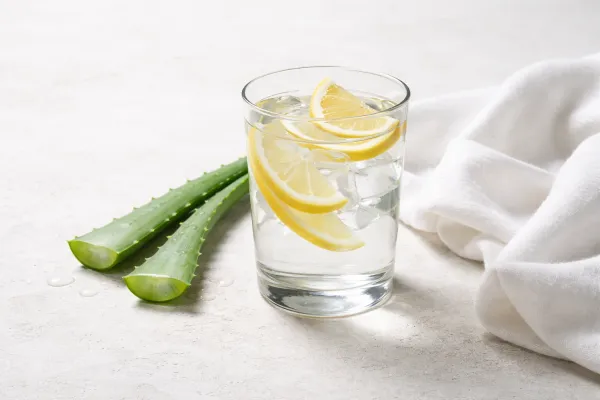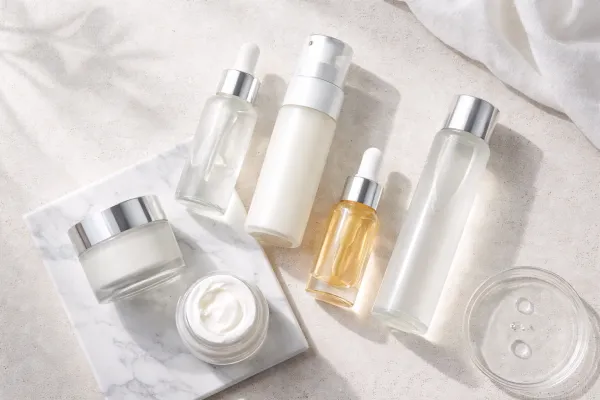Unlock Youthful Skin: The Ultimate Guide to Anti-Aging Sunscreens
Discover the best anti-aging sunscreens to keep your skin youthful and protected from UV damage!

Sunscreen is not just for beach days; it's a crucial part of keeping your skin looking young and healthy.
This guide will help you understand why sunscreen matters for anti-aging, how to choose the right one, and tips for making it a part of your daily routine.
With the right sunscreen, you can protect your skin from damage and maintain a youthful glow for years to come.
Key Takeaways
- Sunscreen protects against UV rays that cause skin aging.
- Look for sunscreens with ingredients like zinc oxide or titanium dioxide.
- Apply sunscreen every morning, even on cloudy days.
- Reapply sunscreen every two hours, especially if you're outdoors.
- Choose a sunscreen that fits your skin type, whether oily, dry, or sensitive.
Why Sunscreen is Essential for Anti-Aging

Understanding UV Damage
We all know that the sun can be pretty harsh on our skin.
UV rays are sneaky little devils that can cause serious damage. They penetrate deep into our skin, breaking down the collagen and elastin that keep our skin looking youthful.
This leads to wrinkles, brown spots, and all those signs of aging we want to avoid.
The Role of SPF in Skincare
So, what’s the deal with SPF?
It’s not just a number on a bottle! SPF, or Sun Protection Factor, tells us how well a sunscreen can protect our skin from UVB rays, which are the main culprits behind sunburn.
For example, if you use SPF 30, it means you can stay in the sun 30 times longer without burning than if you weren’t wearing any sunscreen at all.
But remember, sunscreen is not just for beach days; it’s a daily must-have!
Common Myths About Sunscreen
Let’s bust some myths:
- I don’t need sunscreen on cloudy days.
- Wrong! Up to 80% of UV rays can still reach your skin even when it’s cloudy.
- I can skip sunscreen if I have makeup on.
- Nope! Makeup doesn’t provide enough protection.
- Sunscreen is only for summer.
- UV rays are present all year round, so we need to protect our skin every day!
Remember, using sunscreen daily is one of the best ways to keep our skin looking young and vibrant. Let’s make it a habit!
In short, sunscreen is our skin’s best friend in the fight against aging. Let’s not forget to apply it every day!
Choosing the Right Anti-Aging Sunscreen

When it comes to picking the right sunscreen, we want to make sure we’re getting the best protection for our skin.
Choosing wisely can make a huge difference!
Here’s what we need to consider:
Ingredients to Look For
- Broad-Spectrum Protection: Look for sunscreens that protect against both UVA and UVB rays.
- SPF 30 or Higher: According to the FDA, only sunscreens with an SPF value of 15 or higher can be considered effective for helping to protect against early skin aging.
- Moisturizing Ingredients: Ingredients like hyaluronic acid or glycerin can help keep our skin hydrated.
Chemical vs. Physical Sunscreens
- Chemical Sunscreens: These absorb UV rays and often have a lighter feel. They’re great for daily use but may irritate sensitive skin.
- Physical Sunscreens: These sit on top of the skin and reflect UV rays. They’re usually better for sensitive skin types.
- Personal Preference: It’s all about what feels best for us!
How to Read Sunscreen Labels
- Check the SPF: Make sure it’s at least 30.
- Look for "Water-Resistant": This means it will stay effective for a certain amount of time while swimming or sweating.
- Watch for Expiration Dates: Sunscreens can lose their effectiveness over time.
Remember, the best sunscreen is the one we’ll actually use! Finding a formula we love means we’re more likely to apply it regularly.
In the end, we want to protect our skin and keep it looking youthful. With so many options out there, it’s all about finding what works for us!
How to Incorporate Sunscreen into Your Daily Routine
Morning Skincare Routine
In the morning, we should make sunscreen the last step of our skincare routine.
After applying our moisturizer, we can slather on a broad-spectrum sunscreen with at least SPF 30.
This creates a protective barrier against harmful UV rays.
Reapplying Throughout the Day
We all know that sunscreen isn’t a one-and-done deal.
To keep our skin protected, we need to reapply every two hours, especially if we’re sweating or swimming. Setting a reminder on our phones can help us remember this important step.
Combining Sunscreen with Makeup
If we wear makeup, we can still protect our skin! Using a foundation or setting spray with SPF can give us an extra layer of protection.
However, it’s best to apply a dedicated sunscreen first to ensure we’re getting the full benefits.
Remember, incorporating sunscreen into our daily routine is a simple yet powerful way to keep our skin youthful and healthy.
By following these steps, we can easily make sunscreen a part of our everyday lives. Let’s keep our skin glowing and protected!
Top Anti-Aging Sunscreens for Different Skin Types

When it comes to keeping our skin looking youthful, choosing the right sunscreen is key.
Different skin types have different needs, and we want to make sure we’re giving our skin the best protection possible.
Here’s a quick guide to help us pick the right sunscreen based on our skin type:
Best for Oily Skin
- Look for oil-free and non-comedogenic formulas.
- Gel-based or mattifying sunscreens work wonders to control shine.
- Ingredients like salicylic acid can help prevent breakouts.
Best for Dry Skin
- Hydrating sunscreens with ingredients like hyaluronic acid or glycerin are a must.
- Cream-based options are often more moisturizing and can help keep our skin soft.
- Look for products that also contain antioxidants for extra protection.
Best for Sensitive Skin
- Mineral sunscreens with zinc oxide or titanium dioxide are the best bet.
- These ingredients are less likely to cause irritation or allergic reactions.
- Always do a patch test first to ensure our skin reacts well.
Skin Type | Recommended Sunscreen Type | Key Ingredients |
|---|---|---|
Oily | Gel-based, oil-free | Salicylic acid, Niacinamide |
Dry | Cream-based, hydrating | Hyaluronic acid, Glycerin |
Sensitive | Mineral, non-irritating | Zinc oxide, Titanium dioxide |
Remember, no matter our skin type, daily sunscreen use is essential to protect against UV damage and keep our skin looking youthful!
DIY Sunscreen Recipes: Are They Effective?

Pros and Cons of DIY Sunscreens
When it comes to making our own sunscreen, we often think it’s a fun and natural way to protect our skin.
But let’s be real, there are some serious concerns we need to consider:
- Effectiveness: Many DIY recipes lack the proper ingredients to block harmful UV rays effectively.
- Safety: Some ingredients can cause skin irritation or allergic reactions.
- Regulation: Unlike commercial sunscreens, DIY options aren’t tested for safety or effectiveness.
Popular DIY Sunscreen Ingredients
If we’re still curious about what goes into these homemade sunscreens, here are some common ingredients people use:
- Coconut Oil: Often praised for its moisturizing properties, but it only has a low SPF.
- Zinc Oxide: A mineral that provides some sun protection, but needs to be used in the right concentration.
- Shea Butter: Great for hydration, but again, not a strong sun blocker.
Expert Opinions on DIY Sunscreens
We’ve got to listen to the experts here. Many dermatologists warn against relying on homemade sunscreens.
According to one expert, "homemade sunscreens do not provide effective protection against harmful UV radiation." So, while it might be tempting to whip up a batch in our kitchen, it’s safer to stick with products that are proven to work.
In the end, protecting our skin is crucial. We should prioritize products that are tested and approved to keep our skin safe from sun damage.
So, while DIY might sound appealing, let’s not forget the importance of using proper sunscreen to keep our skin youthful and healthy!
Lifestyle Tips to Enhance Sunscreen Effectiveness
Diet and Hydration
To keep our skin looking youthful, we need to think about what we put into our bodies.
Here are some tips:
- Stay hydrated: Drinking plenty of water helps keep our skin plump and fresh.
- Eat a balanced diet rich in antioxidants, like fruits and veggies, to fight off skin damage.
- Consider adding foods high in omega-3 fatty acids, like fish and nuts, for extra skin benefits.
Protective Clothing and Accessories
Wearing the right clothes can give our skin an extra layer of protection:
- Long sleeves and wide-brimmed hats can shield us from harmful rays.
- Sunglasses with UV protection are a must to keep our eyes safe.
- Look for clothing with built-in UV protection for those long days outside.
Avoiding Peak Sun Hours
We all love the sun, but it’s best to avoid it when it’s strongest:
- Try to stay indoors between 10 AM and 4 PM when UV rays are at their peak.
- If we have to be outside, seek shade whenever possible.
- Plan outdoor activities for early morning or late afternoon to minimize sun exposure.
By making these simple lifestyle changes, we can enhance the effectiveness of our sunscreen and keep our skin looking youthful for years to come!
Final Thoughts on Anti-Aging Sunscreens
Choosing the appropriate anti-aging sunscreen is a transformative step for maintaining your skin's youthful and vibrant appearance.
Keep in mind, it’s not solely about aesthetics; it’s about safeguarding your skin from damaging rays every day.
Make it a routine to apply sunscreen, even on overcast days or when you’re simply relaxing at home.
Your future self will appreciate it! Stay protected from the sun and continue to glow!




